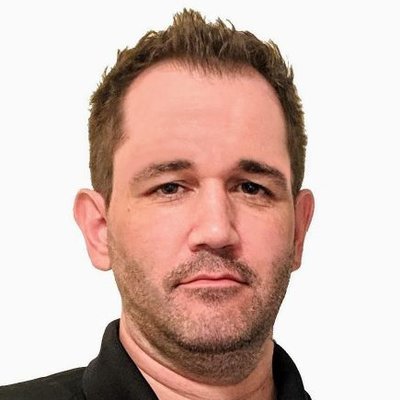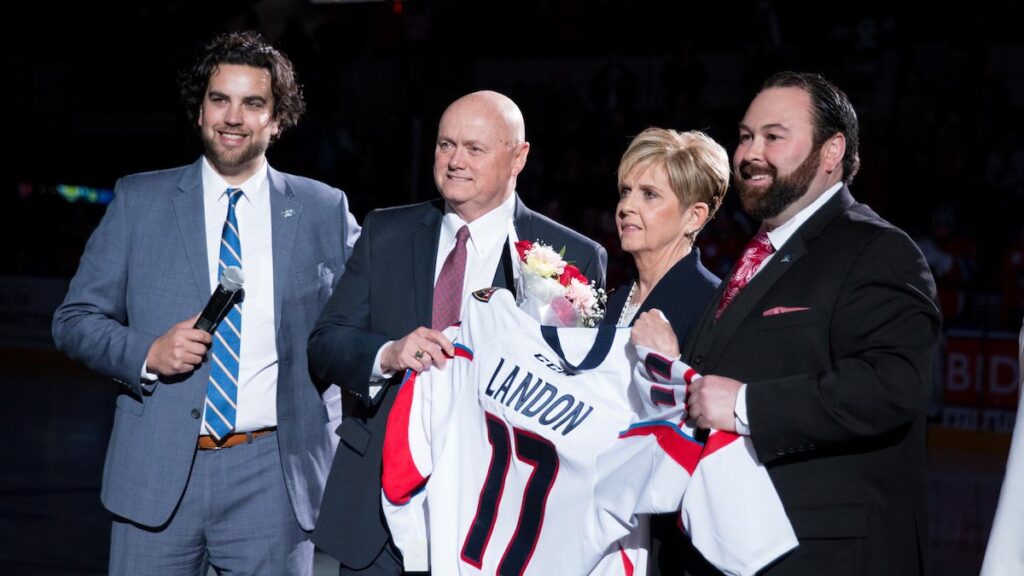![]() Patrick Williams, TheAHL.com Features Writer
Patrick Williams, TheAHL.com Features Writer
It’s the fall of 1969, and Bruce Landon is on his way to the city that would become his hockey home for most of the next half-century.
Change had started to sweep across minor-league hockey, a challenging industry in the best of times. Plenty more of that would follow in the ensuing decades.
But back in 1969, the Los Angeles Kings – two years removed from their expansion season in the National Hockey League – were putting in significant effort to build out a solid development program. They had purchased the Springfield Indians AHL franchise from Eddie Shore in 1967, given their new AHL affiliate the same Kings moniker, and clad the team in the organization’s purple-and-gold colors.
Landon, a native of Kingston, Ont., and Los Angeles’s fourth-round selection in the 1969 NHL Amateur Draft, headed to Massachusetts to begin his pro career in the AHL’s capital city.
These were boom times for the AHL after former Indians general manager Jack Butterfield had been appointed president of the league in 1966. With the NHL having added six expansion teams in 1967, player jobs were sprouting across hockey. NHL-AHL affiliations continued to take on a much more structured look than in the past. With the NHL and AHL maps growing, and the World Hockey Association’s debut only three years away, it was a good time to be a player.
Landon had just turned 20 when the Springfield Kings opened their 1969-70 season against the visiting Baltimore Clippers on Oct. 10, 1969, when he made 31 saves in a 6-0 shutout in his first professional start. He went on to play 45 games and helped the Kings reach the Calder Cup Finals.
A year later, future Hockey Hall of Fame member Billy Smith showed up in Springfield for his own rookie season. Landon was limited to 15 appearances as Smith backstopped the Kings to a Calder Cup title. Following his third season in Springfield, Landon took a chance on the WHA and signed a deal with the New England Whalers,
By now 23 years old, Landon took a chance on the WHA before the 1972-73 campaign. He signed a deal with the New England Whalers, first playing out of Boston and then temporarily in Springfield before the team settled into the Hartford Civic Center in 1975.
But Landon’s road eventually took him back to Springfield. Following five years with the Whalers, Landon returned to a different-looking AHL. Shore had re-acquired his franchise and restored the Indians name. But that early-1970’s growth for the AHL had stalled; after dipping to six teams for the 1976-77 campaign – halved from 12 teams just three years earlier – the league found itself fighting for its own survival.
Landon played 14 games for the Indians in 1977-78 before a knee injury forced him to retire at age 28.
With a family to support, what now? He was a hockey player. But now he was a hockey player who needed a job.
So when owner George Leary, who purchased the club from Shore in 1976, offered Landon a job, the hockey player put on a suit and tie and went to work in the front office. Back then, operating an AHL team was something much more akin to a mom-and-pop operation. It was in those circumstances that Landon began this new career. He still worked in hockey, but that was about all that remained the same for him.
“It was learn-as-you-go,” said Landon, who took the job without any business-side or marketing background. Leary wanted him to take on group sales, so Landon did that. Like everyone around him – in Springfield, the league office, and across the AHL map – it was a do-what-had-to-be-done existence.
“They were able to survive the turmoil,” Landon said of the AHL of the time. “The league was able to survive and came out of it.”
Landon learned the business side quickly, be it sales, marketing or public relations. In 1980, he won the Ken McKenzie Award from the AHL for outstanding promotion of his team. And when team broadcaster Peter Cooney bought the franchise from Leary in 1982, he installed Landon as the team’s general manager.
While the AHL began to grow again, the Indians forged several different NHL affiliations during the 1980’s, all secured and nurtured by Landon. The AHL recognized him again with the James C. Hendy Memorial Award as the league’s outstanding executive in 1989. The Calder Cup returned to Springfield as the team won back-to-back Calder Cup titles in 1990 and 1991, doing so under two different NHL affiliates in the New York Islanders and the Hartford Whalers.
“I enjoyed it so much,” Landon said of learning the entire business. “I can honestly say there wasn’t one day, not one day in my whole career, that I regretted going into work or thought I had made the wrong decision. I think when you have a passion for it – and I certainly did – it becomes much easier. I was able to grow into the role.”
But more challenges were to come. In 1994, Cooney sold the Indians to a group of investors who would relocate the franchise to Worcester, Mass. An AHL mainstay for decades, Springfield suddenly had an uncertain hockey future.
Landon and his former Springfield teammate Wayne LaChance moved quickly. They put together a group within two weeks and landed an expansion franchise, the Springfield Falcons, in time for the 1994-95 season. Landon was now in the owner’s seat. He had people to lean on for advice, such as new league president Dave Andrews, Syracuse Crunch owner Howard Dolgon and Hershey Bears GM Doug Yingst. Bob Oliver was Landon’s “right-hand man,” starting as office manager and eventually becoming senior vice president and chief financial officer.
The challenges rarely eased, however. The Falcons had affiliation agreements with the Hartford Whalers, Winnipeg Jets/Phoenix Coyotes, Tampa Bay Lightning, Edmonton Oilers and Columbus Blue Jackets over the next two decades. Landon, also serving as the team’s president and general manager, had to keep the business side of the operation going even as the Falcons struggled on the ice. He remained part of a new ownership group that took over in 2002, then facilitated a sale to Charles Pompea in 2010 with the commitment to keep the team in Springfield. But the Falcons went nine seasons without qualifying for the Calder Cup Playoffs.
Although Landon kept the business going, losing takes a toll on any organization. In February 2014, a 64-year-old Landon decided it was time to reduce his workload, transitioning from team president to an advisory role. And it was in this capacity that he helped save hockey in the city once more, providing guidance to bring a group of local owners together to launch the Springfield Thunderbirds in the spring of 2016.
Landon has been enshrined in the AHL Hall of Fame, the Massachusetts Hockey Hall of Fame and the Kingston & District Sports Hall of Fame. The street outside the main entrance of the MassMutual Center is now called Bruce Landon Way. And beginning next spring, the AHL Board of Governors will recognize the work of one outstanding hockey executive with the Bruce Landon Award, honoring a man whose career in the league spanned 48 years.
“I’m very, very appreciative of the Board of Governors to go forward with something like this… I’m very honored, very humbled,” Landon said. “It’s something I’m very proud of.”
In Springfield, where Thunderbirds president Nathan Costa is following the path worn by Landon to establish a strong business foundation and front office, the club has seen an increase in attendance every year since joining the AHL. They reached the Calder Cup Finals in 2022, and recently locked up a long-term affiliation with the St. Louis Blues.
“I think that’s what makes me smile,” Landon said, “knowing [we] weathered a lot of tough years. I was part of the good years and some bad years, but through the end of it we were able to make sure that it stayed here. I can look back and say ‘mission accomplished.’
“The team’s here, the team’s doing great, and I can be proud of the fact that I played a part, at least, making sure it stayed here.”
More time with his wife, Marcia, and his family – plus a bit of golf and housework – beckoned instead.
Hockey in Springfield was safe.

On the American Hockey League beat for two decades, TheAHL.com features writer Patrick Williams also currently covers the league for NHL.com and FloSports and is a regular contributor on SiriusXM NHL Network Radio. He was the recipient of the AHL’s James H. Ellery Memorial Award for his outstanding coverage of the league in 2016.

